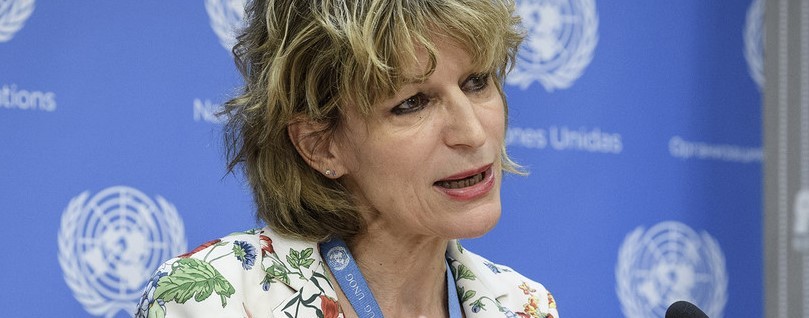Agnès Callamard, UN Special Rapporteur on extrajudicial, summary or arbitrary executions, denounced the lack of investigations into the killing of a foreign journalist in South Sudan three years ago.
Freelance journalist Christopher Allen, a dual British-American citizen, was killed by South Sudanese armed forces in the town of Kaya while covering clashes between government and opposition forces on 26 August 2017. Images of his body, stripped naked, were widely shared online.
Senior South Sudanese government officials reportedly “justified” the killing, labelling him a rebel and a criminal who entered the nation illegally.
At least ten other journalists have been killed during the civil war in South Sudan, without accountability for the crimes.
Ms. Callmard said that the absence of a proper investigation sends a “very dangerous signal” that journalists and media workers can be targeted with impunity.
“Three years is too long to leave a bereaved family without answers,” she said in a news release on Tuesday.
“Investigation into crimes committed against journalists – not only in South Sudan, but around the world – is a key element in preventing future attacks and ending impunity.”
‘Legal and moral’ duty to investigate killing
Ms. Callamard called on the South Sudanese authorities to implement recommendations in her official communication, sent to the government on 30 January, concerning the killing.
In the absence of any investigation by South Sudan, the UN rights expert called on the United States Federal Bureau of Investigation (FBI) – in a separate communication to the US Government – to conduct an independent inquiry into the killing.
“The governments of South Sudan and the US can and must take steps to ensure that the circumstances of Mr. Allen’s murder are fully, independently and fearlessly investigated,” stressed the Special Rapporteur.
“The FBI has a duty, both legal and moral, to investigate Mr. Allen’s killing because of well-founded suspicions that war crimes may have been committed by members of South Sudanese forces,” she added.
Special Rapporteurs are part of what is known as the Special Procedures of the Human Rights Council. The experts work on a voluntary basis; they are not UN staff and do not receive a salary.




